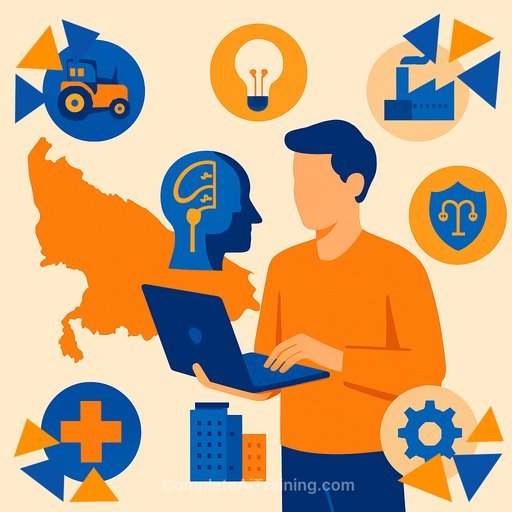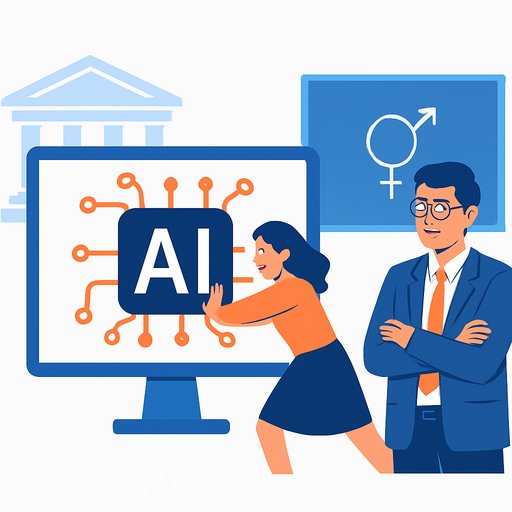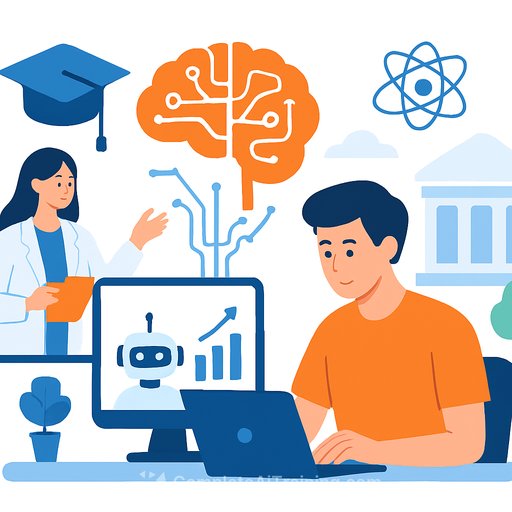Engineers' Day 2025 Survey: AI is changing engineering roles, and upskilling plans surge for FY26
A new Great Learning survey signals a clear shift in India's engineering workforce. 67% of engineers say AI is changing their roles, and 86% say upskilling is essential to stay relevant. In FY26, 85% plan to upskill, with a strong tilt toward AI-driven capabilities.
What engineers plan to learn
AI and ML lead the demand list, followed by data science and analytics, software development, cloud computing, and cybersecurity. Within AI and ML, the most sought-after skills are generative AI, agentic AI, Python, and Natural Language Processing (NLP). This is where curriculum and training supply need to move first.
How they want to learn
Engineers prefer speed and specificity. 66% want short programs under six months, while only 5% are open to programs longer than a year. Certificate programs from Indian and global universities are being chosen over traditional postgraduate degrees-signaling demand for job-ready, stackable credentials.
Career mobility and workplace concerns
Career movement is high: 85% are actively or passively seeking a job change this year. Top concerns are work-life balance (33%), job security (18%), and career stagnation (14%). Programs that address these directly will see stronger adoption and outcomes.
Why they upskill
Career growth is the driver. Engineers cite financial growth (20%), promotions (12%), new opportunities (12%), and staying relevant (11%) as key motivations. Aligning learning outcomes to these goals is non-negotiable.
Voices from the field
"Working in the aerospace industry has shown me first-hand how quickly technology is transforming the world. That's why I decided to invest in AI and ML. These skills are reshaping not just aerospace but every sector. For future engineers, my advice is to build strong fundamentals while nurturing curiosity, resilience, and adaptability." - Maruti Rao Taluru, aerospace professional
"Being an engineer today is vastly different from two decades ago. Engineers are at the forefront of the massive shifts brought about by AI and emerging technologies. At Great Learning, more than half of our learners come from engineering backgrounds - a testament to how this community is embracing lifelong learning. By building next-generation skills, engineers are preparing for a decade defined by deep tech and innovation." - Hari Krishnan Nair, Co-Founder, Great Learning
What this means for education leaders
If you build programs, run L&D, or manage academic offerings, the signal is clear: short, targeted, and outcomes-driven learning wins. Engineers want practical skills tied to clear career gains, delivered in formats that fit full-time work.
Program design checklist
- Offer short, stackable certificates (under 6 months) in AI/ML, data, cloud, and cybersecurity with portfolio-ready projects.
- Prioritize generative AI, agentic AI, Python, and NLP modules using live datasets and modern toolchains.
- Use flexible formats: blended or fully online, weekend cohorts, self-paced tracks, and assessment via projects.
- Map each program to career outcomes: salary progression, internal promotions, role transitions, and job security.
- Address work-life balance concerns with predictable schedules, clear workloads, and optional pacing.
- Partner with industry for live capstones, mentorship, and hiring pipelines to reduce time-to-job.
- Equip faculty with AI fluency and regular content refresh cycles tied to tool updates and standards.
- Track impact metrics: completion rates, time-to-skill, placement or internal mobility, and learner satisfaction.
Resource pointers
For standards and government-backed skilling initiatives, explore NASSCOM FutureSkills Prime. For curated AI course paths and certifications aligned to in-demand skills, see:
Bottom line
India's engineers are moving fast toward AI-first competencies. With clear demand for short certificates, career outcomes, and practical AI skill sets, this is a strong cue for universities, training providers, and L&D teams to retool programs now and meet FY26 demand head-on.
Your membership also unlocks:






